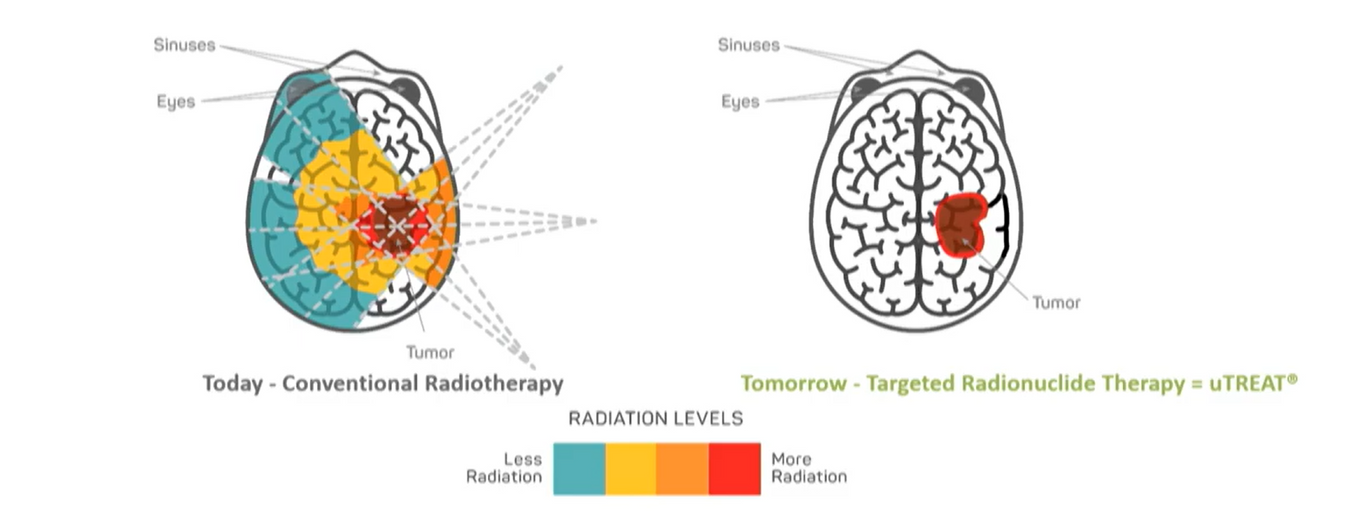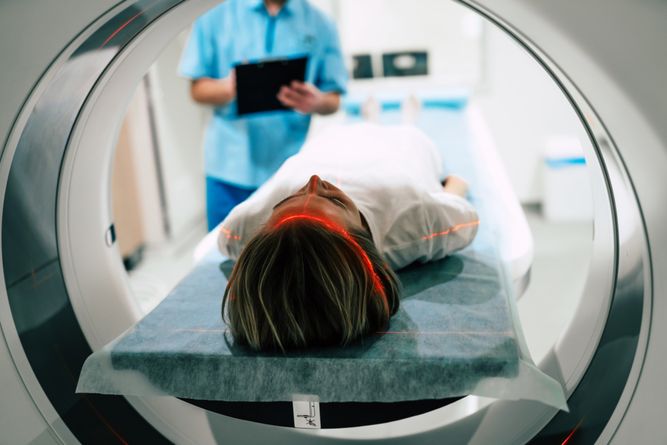uTREAT®
Curasight's uTREAT® is new type of targeted radiation therapy, targeting and irradiating the cancer cells and almost not healthy tissue. By injecting a substance that seeks all cancer cells, including the metastases that are far away from the primary tumour, this offers a personalised and tailored therapy to each patient.
uPAR – the target
uPAR – urokinase-type plasminogen activator receptor – is a unique biomarker of cancer, as it expresses in cancer cells but not in normal tissue. uPAR is part of the system surrounding the breakdown of normal tissue, meaning part of the process that makes cancer spread and metastasise. It has been shown across most cancer forms, that if uPAR is highly expressed then the cancer is aggressive and needs treatment. These characteristics make uPAR an ideal target for radionuclide therapy . Both Curasight's uTREAT® and uTRACE® approach uPAR to find, visualise and treat cancer cells.
Targeted radiation therapy instead of external radiation therapy
The principle and advantage of using targeted radiation therapy rather than external beam therapy is that it only irradiates healthy tissue to a very limited extend. External radiation therapy irradiates from the outside, from different angles, and on it's way to the tumour it will also irradiate substantially healthy tissue. In targeted radiation therapy, a substance that is instead injected into the patient, will seek tumour cells and bind there. Yet another advantage is that the targeted radiation therapy binds to any cancer cell (expressing uPAR), so patients with widespread cancer can be treated in a much more gentle way with this technology. External therapy goes for the primary tumour or a limited number of lesions and cannot handle a widely spread cancer since the body wouldn't tolerate that much radiation.

Left: external radiation is given from several different angles to irradiate the tumour. However, this still causes healthy tissue being irradiated as well. This is what limits the amount of radiation that can be delivered. Right: depiction of how targeted radiation using Curasight's uTREAT®, which automatically seeks the tumour cells and is much more effective and gentler to the patient, is expected to work.
Using a peptide rather than antibodies
uTREAT® is based on a small peptide. The big advantage of that is that is has a very short life span in the blood, meaning it quickly seeks out the cancer, binds to it and from there irradiates whereas the unbound compound is quickly removed from the body. Seen from studies with uTRACE® the the half-life in blood is less than ten minutes. Compared to antibodies that "lives" longer and would circulate in the body for days, causing substantial irradiation of healthy tissue.


